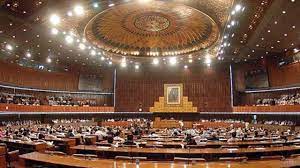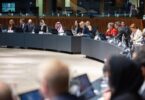Malaika Sarwar
Separation of powers has never existed in Pakistan in practice, nor has the checks and balances system prevailed in the country. Democracies all over world consider the principle of separation of powers as a tool to protect the citizens of the state from tyrannical and unrestraint powers of the rulers. Separation of powers, also known as Trias Politica, is the idea that the government must be based on “three separate branches” where power is wielded, so they can keep a check on each other.
The underlying objective of the introduction of this doctrine is to help each organ identify its constitutional limits, accept the existence and jurisdiction of other state organs, restrain its authority, keep surveillance on others so they may not transgress their authority, and not hinder their functioning. Though it is impossible to achieve absolute separation of power, some overlapping will occur especially between the legislature and executive branches. However, the separation between the judiciary and the other two branches is very strict, as the judiciary must be independent and free from political influence.
However, in Pakistan, the concept Separation of Powers could not find its place accurately. In Pakistan, the judiciary has the power to pronounce upon the accent decision of executive and legislative power of government. Under Article 184(3) of the Constitution of Pakistan, the Supreme Court can put up by exercising Suo moto power. Conclusively, it could be interpreted that the judiciary rather than holding separation of power, are busy doing checks on the executives, involving themselves in their matters, therefore, bringing minimal benefit to Pakistani society.
‘When the legislative and executive powers are united in the same person, or in the same body of magistrates, there can be no liberty. There is no liberty if the powers of judging are not separated from the legislative and executive. There would be an end to everything, if the same man or the same body were to exercise those three powers.’ (Charles De Montesquieu)
It is being circulated that there are now not three but rather six powers. Those are bureaucracy, media, and external advisors. Technically, bureaucracy is part of the executive branch, but its influence spans so wide that it also includes the power of the other two branches. Bureaucracy is not just about enforcing laws, rather it also serves to make new regulations and in a way act as the legislature since that rule has the force of law and people can be punished by breaking them.
Throughout the history of Pakistan, it has been evident that former bureaucrats such as Ghulam Muhammad and Iskander Mirza have been highly involved in Political and Constitutional infrastructure. Hence although 76 years are about to pass, Pakistan’s bureaucracy is nothing but the ruling class being neither responsive nor accountable for their actions and we can fairly say that the Pakistan bureaucracy believes that their work is to rule rather than to serve.
According to International Crisis Groups Report on “Reforming Civil Services in Pakistan” (2010), ‘Decades of mismanagement, political manipulation, and corruption have rendered Pakistan’s civil service incapable of providing effective governance and basic public services. In public perceptions, the country’s 2.4 million civil servants are widely seen as unresponsive and corrupt, and bureaucratic procedures cumbersome and exploitative.’
Regards to Media in the central role of government is considered a bridge between the government and the people. The main goal of the media is to ensure transparency in reporting on governmental issues and to provide information to the people so they can form an opinion and be involved in holding the government accountable. Media plays an important role in narrative buildings and political landscape shaping. The media needs to be unbiased as it plays the main role in narrative building and public opinion.
The sixth power which we have is the external advisors. The external advisors include the advisory board and lobby group. They are hired by the government to report or advise on the issues the government does not know, as a result, influencing legislation and its execution, or at times even arguably manipulating it. In Pakistan, we have different advisory boards such as an economic advisory council, maritime advisory committee, technical advisory committee, etc.
In this whole democratic transition, the military plays a very significant role as an additional unavoidable stakeholder. “Whereas in Pakistan, with passage of time, dependence on military increased which not only gave civilian problem but also showed the impotence of the civilian government to settle these problems. This led the military to think that it was the only institution which could lead stability to the nation” (Ayesha Siddiqua)
The first three powers check the actions of each other but the question which arises is who will check the power of the other three? Some people will say the seventh power rests with people, but from my analysis, the people are busy paying their financial debts and fulfilling their basic needs. The answer can be found in the famous quote of Montesquieu “It is necessary from the very nature of the things that power should be a check to power”.
In nutshell, since its formation, Pakistan has been facing the menace of political instability and polarization. At the root lies the problems of institutional clash, power mongering, and feudalistic structures which have constructed the political culture of the country. Therefore, power is not equally distributed amongst different branches of the nation-state. Montesquieu’s separation of powers theory, if applied in letter and spirit, would create a peaceful environment for the progress and prosperity of this country.
For that, all stakeholders should collaboratively struggle for fusion of power at national level. Power must be decentralized and equally distributed amongst three pillars of country: legislative, executive and judiciary, with a system of “checks and balances” for all these branches. Consequently, the prosperous future of Pakistan lies in the “separation of powers”.
The writer is a student in the school of Politics and International Relations at Quaid-i-Azam University, Islamabad. She can be reached at sarwarmalaika18@gmail.com







